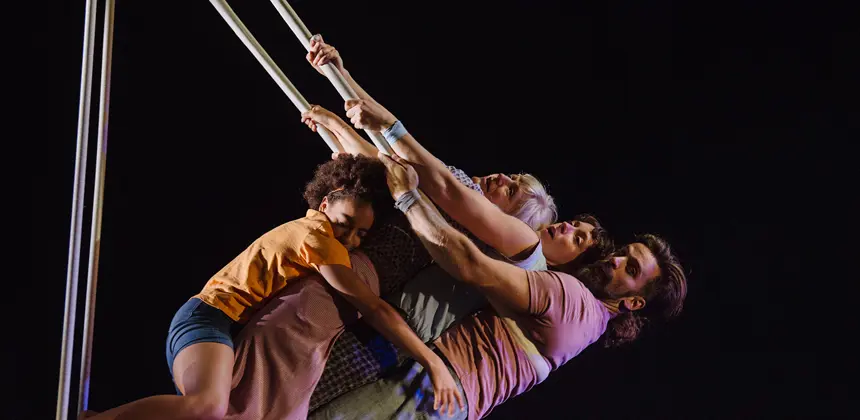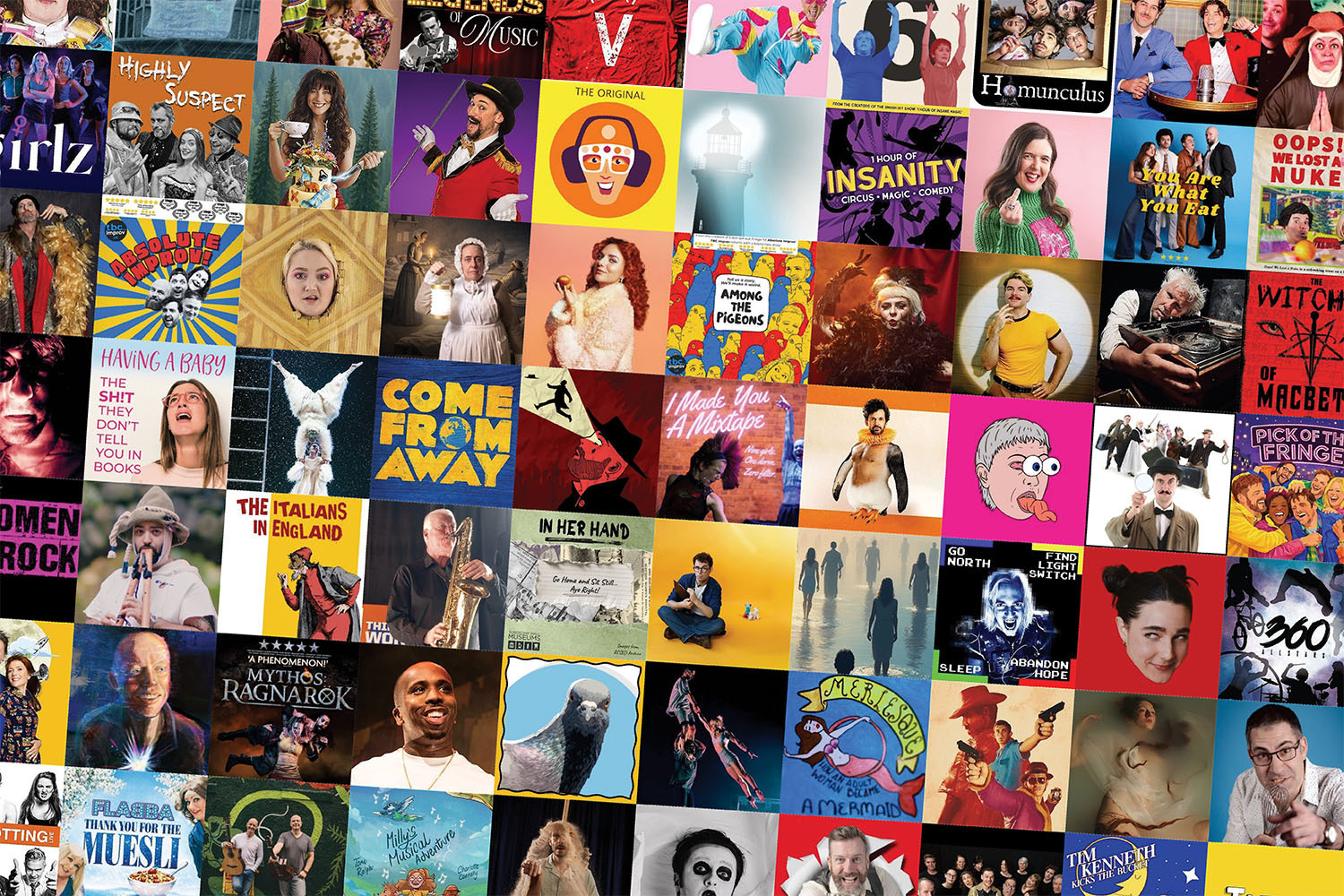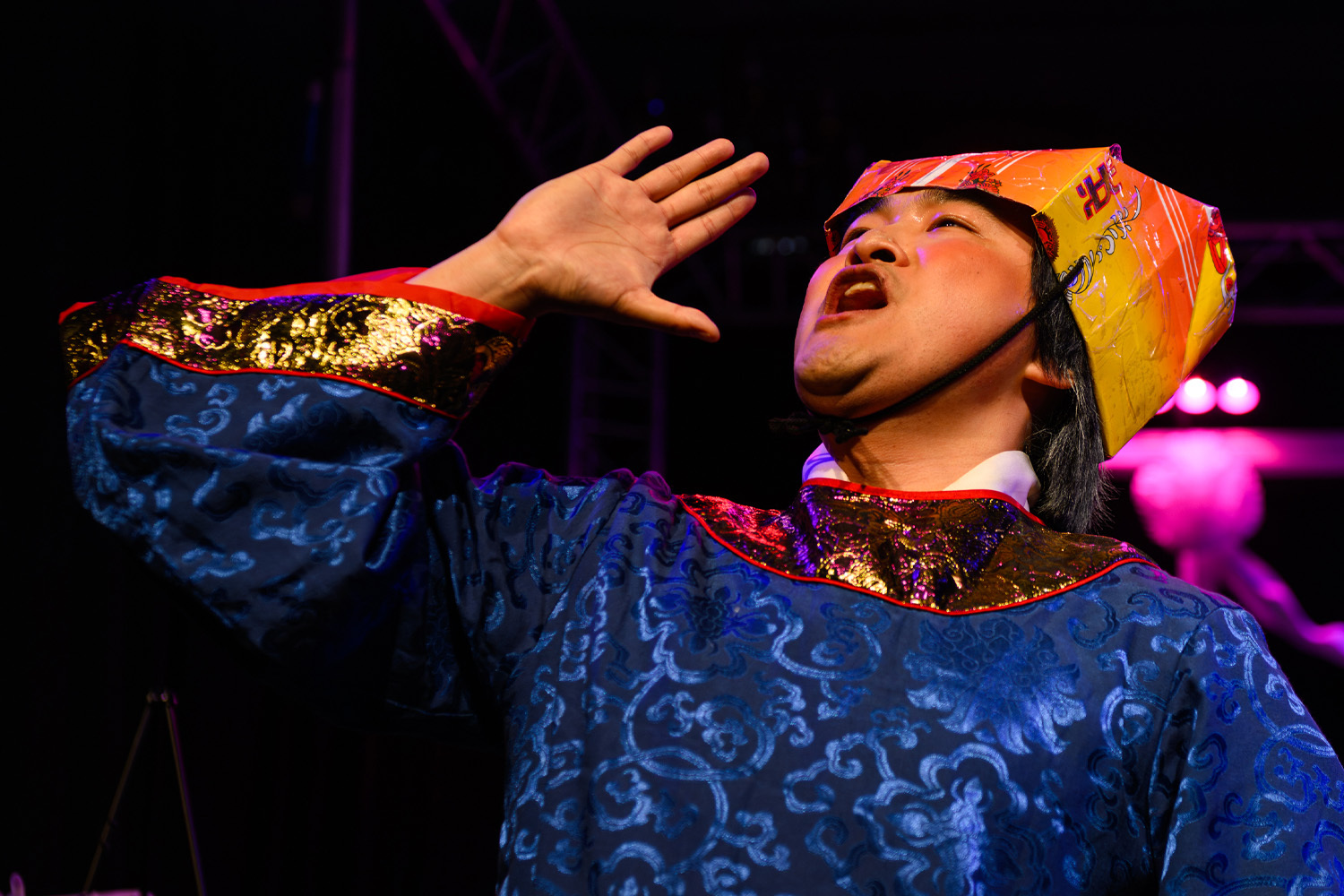The new vision “to give anyone a stage and everyone a seat” comes as venues, producers and artists aim to recover from the Covid-19 pandemic with the first full Fringe programme since 2019.
This vision is accompanied by six Fringe Development Goals. Each sets ambitious targets designed to ensure the long-term renewal of the festival.
The six themes and headline targets of the Fringe Development Goals are:
1 Thriving artists
Be the best place in the world for emerging artists to perform and the best platform for talent to emerge.
2 Fair work
Eradicate any remaining unfair or exploitative work conditions at The Fringe.
3 Climate action
Become a carbon net zero event by 2030.
4 Equitable Fringe
Who you are and where you are from is not a barrier to attending or performing at the Edinburgh Fringe.
5 Good citizenship
The Fringe, a force for good in and for the city of Edinburgh.
6 Digital evolution
Enhance the live Fringe experience by ensuring a world-class digital experience.
Phoebe Waller-Bridge, President of the Edinburgh Festival Fringe Society, said: “So much has changed in our culture and this new vision of the festival reflects that with heart and sincerity, while fiercely maintaining the wild spontaneity and creative freedom it has provided artists and audiences with for the past 75 years. This is a new dawn for an iconic cultural event that's going to be more inclusive, more accessible and more outrageously spectacular than ever before.”
On thriving artists, Shona McCarthy, CEO of the Edinburgh Festival Fringe Society said: “Anyone with a story to tell should be able to find a stage and an audience at the Fringe, but there are some real barriers to being as accessible as we truly want to be. Participating in the festival can be straining, physically, financially and mentally. It’s important that we work to tackle these issues head on and continue to ensure that artists see the Fringe as a positive experience.”
On climate action Shona McCarthy added: “While the whole Fringe community has taken steps to reduce carbon emissions, we must do more to contribute to Scotland’s goal to becoming net zero by 2045. We are making commitments now to tackle the big issues together and will be helping the entire Fringe community to play its part, and we want to get to net zero by 2030.”
On fair work, Shona McCarthy commented: “Working and volunteering at the Fringe should be rewarding for all. It is essential that every opportunity is fair. Volunteers and workers should be provided the best opportunity and treatment at the Fringe. We are committed to scrutinising any suggestion of exploitation, unfair or unsafe working practices and we will withdraw our services from any repeat offenders.”
On equity, Shona McCarthy said: “Everyone should be able to experience the magic of live performance at the Fringe. We aim to improve access to the festival at every level. We know that Edinburgh’s historic infrastructure can create barriers for disabled artists and audiences. We also want to increase provision for captioning and BSL interpretation, as well as audio description. While we’ve made some positive steps in all these areas, there's still so much more we can do.”
On Edinburgh citizenship, Shona McCarthy said: “The Fringe is deeply rooted in Edinburgh and it’s important that everyone who lives and works here feels the Fringe is for them. It’s amazing that the city residents and artists have been very active at the Fringe every year. In 2019, there were over 750 shows from local artists, while over 850,000 tickets were issued to residents from Edinburgh and the Lothians. Some though have expressed concerns about managing scale and protecting green spaces, this requires a collective response from a variety of stakeholders.”
As part of the new vision, the Edinburgh Festival Fringe Society has published a series of commitments that will be implemented this year. These include:
- Source new income streams, sponsorship and investment to support Fringe artists and particularly those who face the greatest barriers.
- Introduction of a three-stage system of monitoring and penalty to address inappropriate or poor working conditions and practices: Warning / Notice / Suspension.
- An annual free-to-access family event for Edinburgh residents.
- Support, and champion, as a priority, under-represented artists and arts professionals.
- The exclusive use of e-tickets in 2022 and a reduction of the programme print run by 50%.
- Support digital literacy and inclusion for all artists and audiences, ensuring there are no barriers for engaging fully with the Fringe.
Shona McCarthy added: “We want the Fringe to remain the world’s premier performing arts festival and we can only do that if it keeps pace with change in the city, in the country and in the sector.
"The modern scale of the Fringe has had an impact on its accessibility. It has enjoyed years of growth and now is the time to ensure that size does not come at the expense of creative freedom or inclusivity. We want the next 75 years to be defined by the quality of the Edinburgh Fringe experience, not the scale. We are determined to tackle unfair work or poor volunteering practices, to radically reduce our carbon footprint and to accelerate our digital offering. By doing so, we will give the Fringe community the tools it needs to be as competitive and enjoyable as possible."




